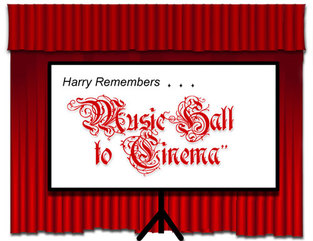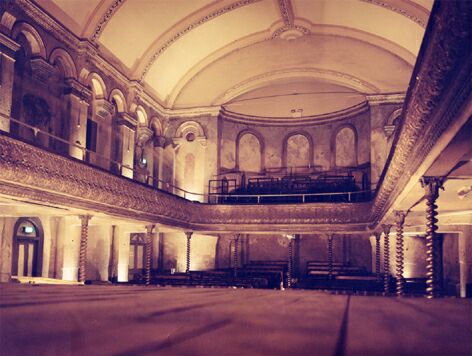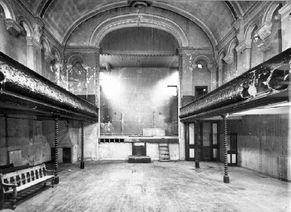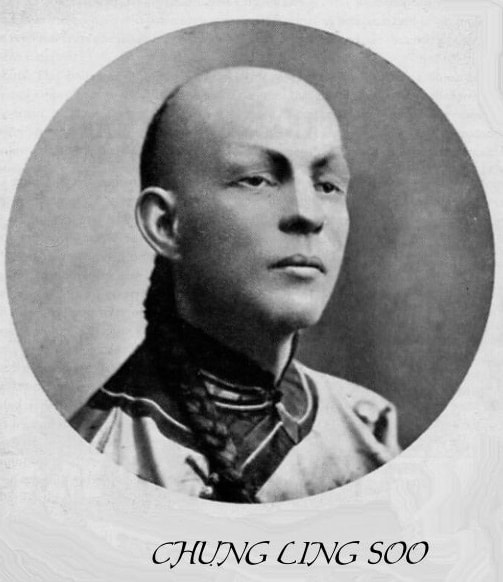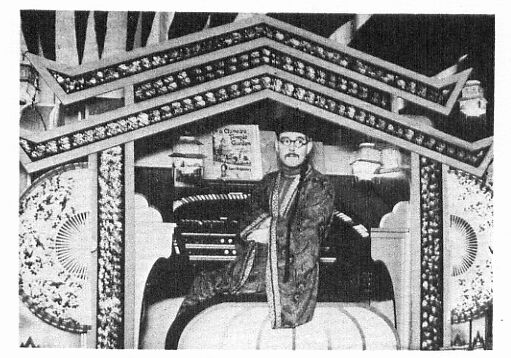Harry Remembers
Occasionally, Harry would reminisce about his days as a cinema organist.
|
“Many of the earliest film shows were presented as novelty acts in music Halls , “ he remarked - (see pic 1 and 2 ). “A 10 or 12 minute spot might be allotted among the acts of singers, comedians, singers and acrobats that made up a programme. No one then thought of moving pictures as more than a passing fad - certainly not as a threat to variety itself.
“As patrons - and managements - were uncomfortable with any long period of silence, improvised piano accompaniments to the films soon appeared. Tommy Grosch was an early exponent of the art - a useful way of earning a living while developing his illusionist’s act. |
|
“Such acts had been made popular by Ching Ling Foo who was born in Pekin [which hadn’t become Beijing in Harry’s day ] and claimed to have been Conjuror at the court of the Empress. He was by all accounts a brilliant illusionist and he became a star of the Music Hall. Naturally there were soon imitators, most of whom claimed to come from the mysterious East.*
|
One of the best was Robinson, an American, who adopted the name Chung Ling Soo - pic 3 . He was much in demand on both sides of the Atlantic and toured Australia and New Zealand - very successfully, it was said. He, poor chap, was killed on stage when a trick went wrong - by no means the only fatality caused by mishaps of the sort. A general perception that acts of this sort were dangerous meant that bookings were harder to find - and this at a time when Music Halls were in decline. Tommy Grosch wisely decided to stick to music, becoming a cinema pianist and later transferring to the organ.
|
“By the thirties, the busiest day for many cinemas was Saturday, with a morning show for children as well as normal afternoon and evening performances. The art of accompanying “silents” lasted longest at these morning shows. The boys and girls loved the old Charlie Chaplin, Laurel and Hardy and Western “flicks” and managements were delighted to oblige. These were much cheaper to rent than more modern stock and they kept the bells, whistles, gongs and other effects on the organ in good order.
“The young patrons, and no doubt, their families, expected a full hour-and-a-half show each week, which often meant that the organist was called on to fill out time. Singalongs, talent shows, story-telling were all used with some players enjoying this part of the work better than others. |
|
“Tommy loved it. He dug out his old mandarin’s robes and illusionist’s kit and appeared as a Chinese organist and conjuror, adopting the stage name of Koo Luk Mum!!! This act was extremely popular and Theatre Managers often encouraged Tommy to produce it at adult performances. It became increasingly elaborate, with a mock pagoda round the console and a growing selection of Chinese articles dotted about - (pic 4 ).
“Old Music Hall traditions, of giving the public something memorable, lasted for many years in the cinemas.” |
David Bridgeman-Sutton,
May 7, 2006
May 7, 2006
* A few years after Harry had dug into his memory, JB Priestley published a novel called Lost Empires [1965]. Central among the Music Hall artistes portrayed was Nick Ollanton, who appeared as an “Indian” illusionist.
** The Cinema Organ Society Newsletter (June 2007) carries an extended memoir of Tommy Grosch. With earnings as a cinema pianist, he had paid his way through University, graduating in Languages at London. During WW2, he took up a school teaching appointment in which he remained until retirement. Chris Haines, the author of the note ends with "he . . . devoted his life to the welfare, education and friendship of his young charges and was a rare gentleman and thoroughly good man".
Who could want a better epitaph?
** The Cinema Organ Society Newsletter (June 2007) carries an extended memoir of Tommy Grosch. With earnings as a cinema pianist, he had paid his way through University, graduating in Languages at London. During WW2, he took up a school teaching appointment in which he remained until retirement. Chris Haines, the author of the note ends with "he . . . devoted his life to the welfare, education and friendship of his young charges and was a rare gentleman and thoroughly good man".
Who could want a better epitaph?

